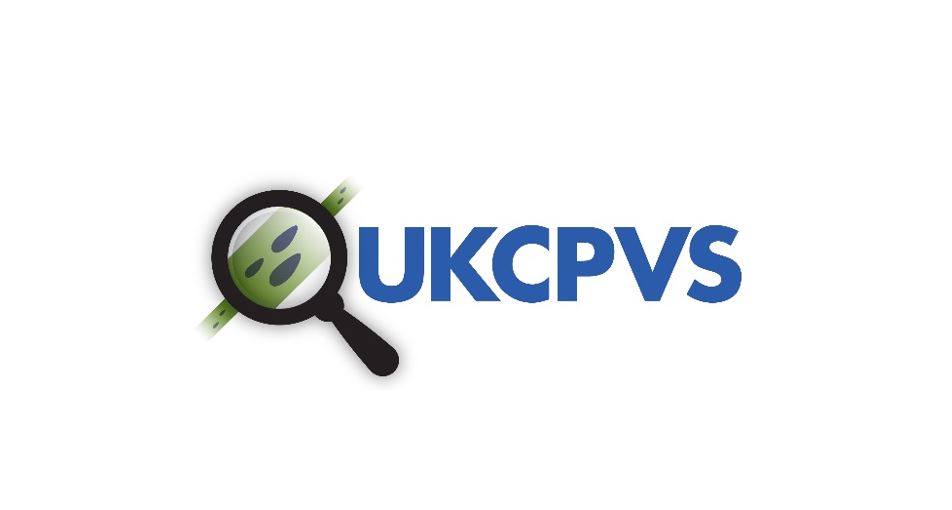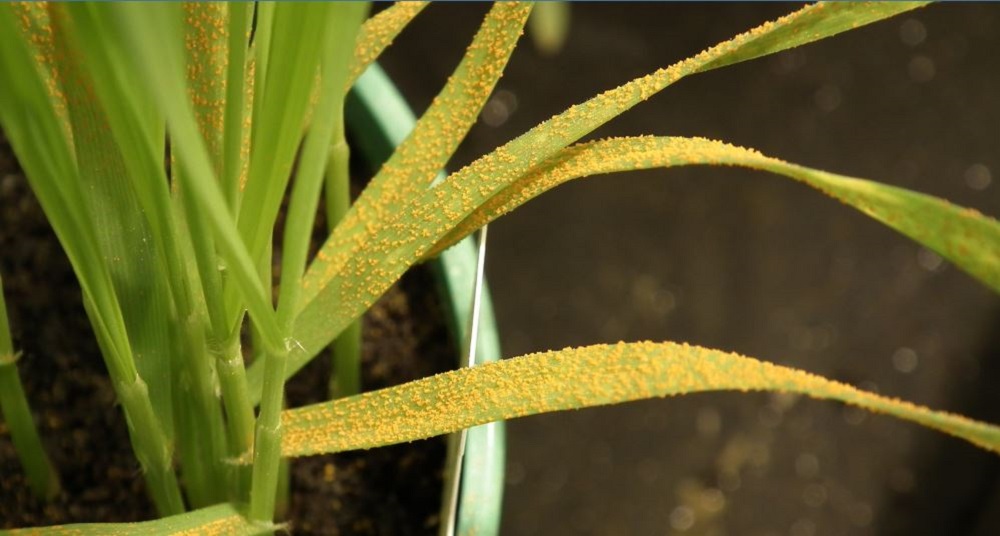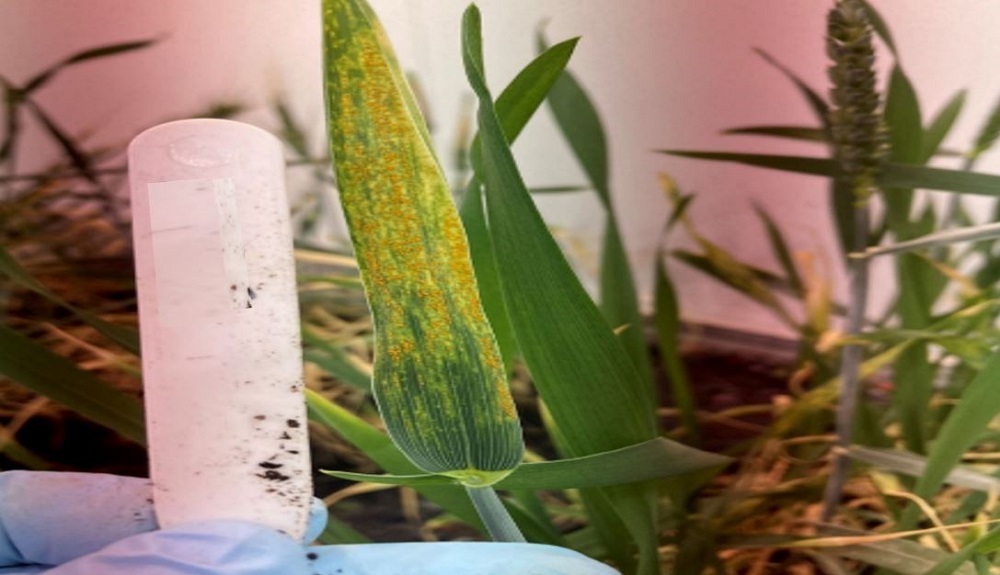- Home
- Knowledge library
- United Kingdom Cereal Pathogen Virulence Survey (UKCPVS)
United Kingdom Cereal Pathogen Virulence Survey (UKCPVS)
Summary
Downloads
UKCPVS Final Project Report 654 (2019-2024) UKCPVS Annual Report (2024) UKCPVS Annual Report (2023) UKCPVS review of the 2022-23 season (final) UKCPVS supplementary data (2023) UKCPVS Annual Report (2022) UKCPVS supplementary data (2022) UKCPVS Annual Report (2021) UKCPVS Annual Report (2020) UKCPVS Annual Report (2019) UKCPVS Annual Report 2018 UKCPVS Annual Report 2017 UKCPVS Annual Report 2016 UKCPVS Annual Report 2015 UKCPVS Annual Report 2014 UKCPVS Annual Report 2013 UKCPVS Annual Report 2012 UKCPVS Annual Report 2011 UKCPVS Annual Report 2010 UKCPVS Annual Report 2009 UKCPVS Annual Report 2008 UKCPVS Annual Report 2007 UKCPVS Annual Report 2006 UKCPVS Annual Report 2005 UKCPVS Annual Report 2004 UKCPVS Annual Report 2003 UKCPVS Annual Report 2002 UKCPVS Annual Report 2001 UKCPVS Annual Report 2000 UKCPVS Annual Report 1999 UKCPVS Annual Report 1998 UKCPVS Annual Report 1997 UKCPVS Annual Report 1996 UKCPVS Annual Report 1995 UKCPVS Annual Report 1994 UKCPVS Annual Report 1993 UKCPVS Annual Report 1992 UKCPVS Annual Report 1991 UKCPVS Annual Report 1990 UKCPVS Annual Report 1989 UKCPVS Annual Report 1988 UKCPVS Annual Report 1987 UKCPVS Annual Report 1986 UKCPVS Annual Report 1985 UKCPVS Annual Report 1984 UKCPVS Annual Report 1983 UKCPVS Annual Report 1982 UKCPVS Annual Report 1981 UKCPVS Annual Report 1980 UKCPVS Annual Report 1979 UKCPVS Annual Report 1978 UKCPVS Annual Report 1977 UKCPVS Annual Report 1976 UKCPVS Annual Report 1975 UKCPVS Annual Report 1974 UKCPVS Annual Report 1973 UKCPVS Annual Report 1972 UKCPVS Annual Report 1971 UKCPVS Annual Report 1970 UKCPVS Annual Report 1969 UKCPVS Annual Report 1968 UKCPVS Annual Report 1967About this project
The UK Cereal Pathogen Virulence Survey (UKCPVS) has monitored changes to pathogen populations since 1967.
The survey uses pathogen samples (isolates), taken from diseased cereal leaf samples, to check which varieties they can infect.
The tests can help detect new races/strains of wheat and barley pathogens that may cause disease on previously resistant cereal varieties.
Rust focus
The latest phase of the project (2025–2027) will specifically support breeding for durable resistance to yellow rust and brown rust in winter wheat.
The screens will use samples from infected leaves taken from geographically diverse areas and various wheat varieties.
Samples can be submitted to UKCPVS by regional agronomists/advisors, breeders or farmers via a FREEPOST service (find out how to submit a sample).
UKCPVS screens up to 100 isolates of each rust species each year to determine their virulence profiles.
The tests prioritise samples from winter wheat varieties with high Recommended Lists (RL) disease resistance ratings for brown and yellow rust.
Isolate subsets will also be provided for use in variety trials, including the RL and the GB and NI Variety Lists (VL).
The work will also develop new differential variety sets for yellow rust and brown rust populations, as part of wider efforts to monitor virulence trends and support breeders in managing resistance gene introductions.
Young plant resistance
RL yellow rust disease resistance information is published for two broad stages: young plant and adult plant.
Despite its name, young plant resistance is effective at all growth stages, although its influence is clearest before the adult plant stage resistance kicks in.
The adult plant stage starts around stem extension, with the precise timing dependant on the variety and environmental conditions. The RL disease resistance rating scale – 1 (least resistant) to 9 (most resistant) – is based on the adult type of resistance.
We have indicated whether a young plant is resistant (r) or susceptible (s) for each variety since RL 2023/24 (although the data has been published in UKCPVS reports for much longer).
Many winter wheat varieties are currently susceptible to yellow rust at the young plant stage. These are more likely to require treatment with a rust active fungicide during the T0–T2 fungicide period, even if they have a high adult plant disease resistance rating.
Following a successful pilot in 2024, the UKCPVS project will now also include field trials with the sole purpose of gathering data on young plant resistance to yellow rust.
Using the full set of RL winter wheat varieties and candidates, UKCPVS will drill these trials in late winter or early spring (weather permitting) at sites traditionally associated with high yellow rust pressures.
This will allow disease assessments to be made at the young plant stage when infection pressures are naturally high.
To boost pressure further, the trials will also be artificially inoculated with yellow rust (multiple isolates) with a highly susceptible variety grown (between the plots) to spread the disease.
The results will help detect any susceptibility missed in growth room tests (which have been traditionally used to classify resistance status at the young plant stage).
UKCPVS will also continue to update and maintain the strategically important collection of cereal rust isolates and differential wheat varieties.
*This project has had several phases, with the cost to AHDB of the current phase shown.
Providing answers to your questions
This research project was funded via a levy-payer-led commissioning process.
Every UKCPVS report since 1967...
This page hosts the UKCPVS report archive.
Get more project information at ahdb.org.uk/ukcpvs




